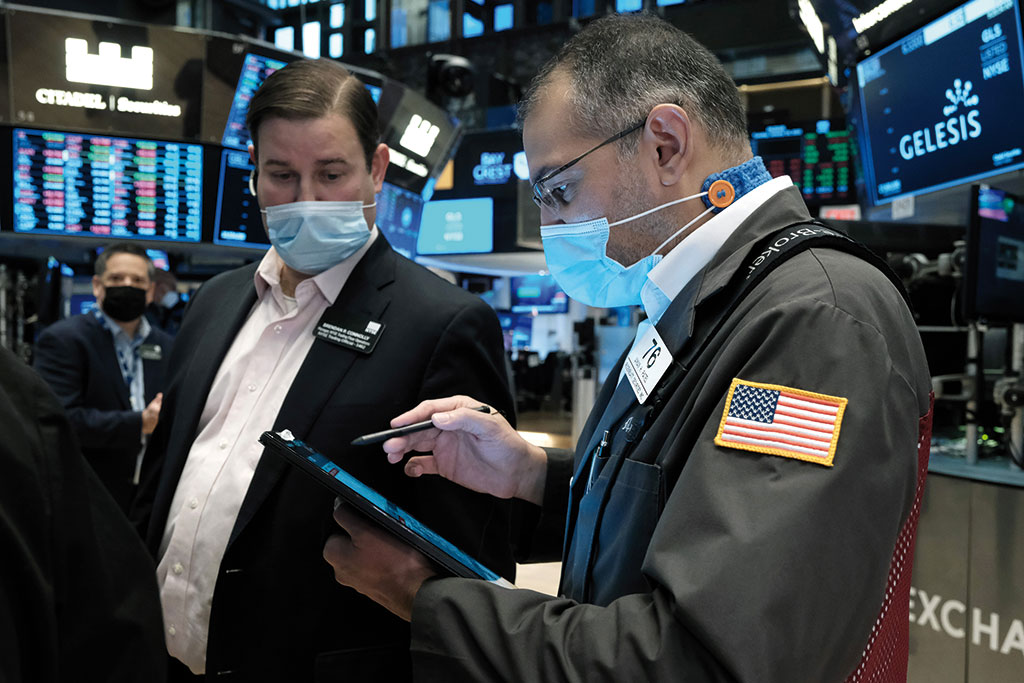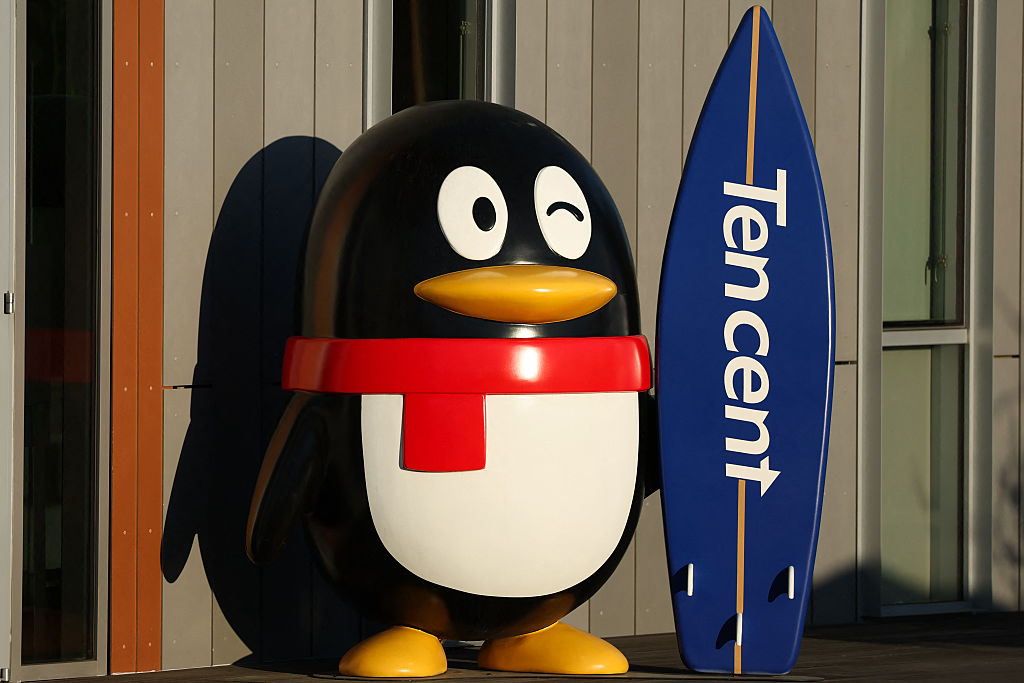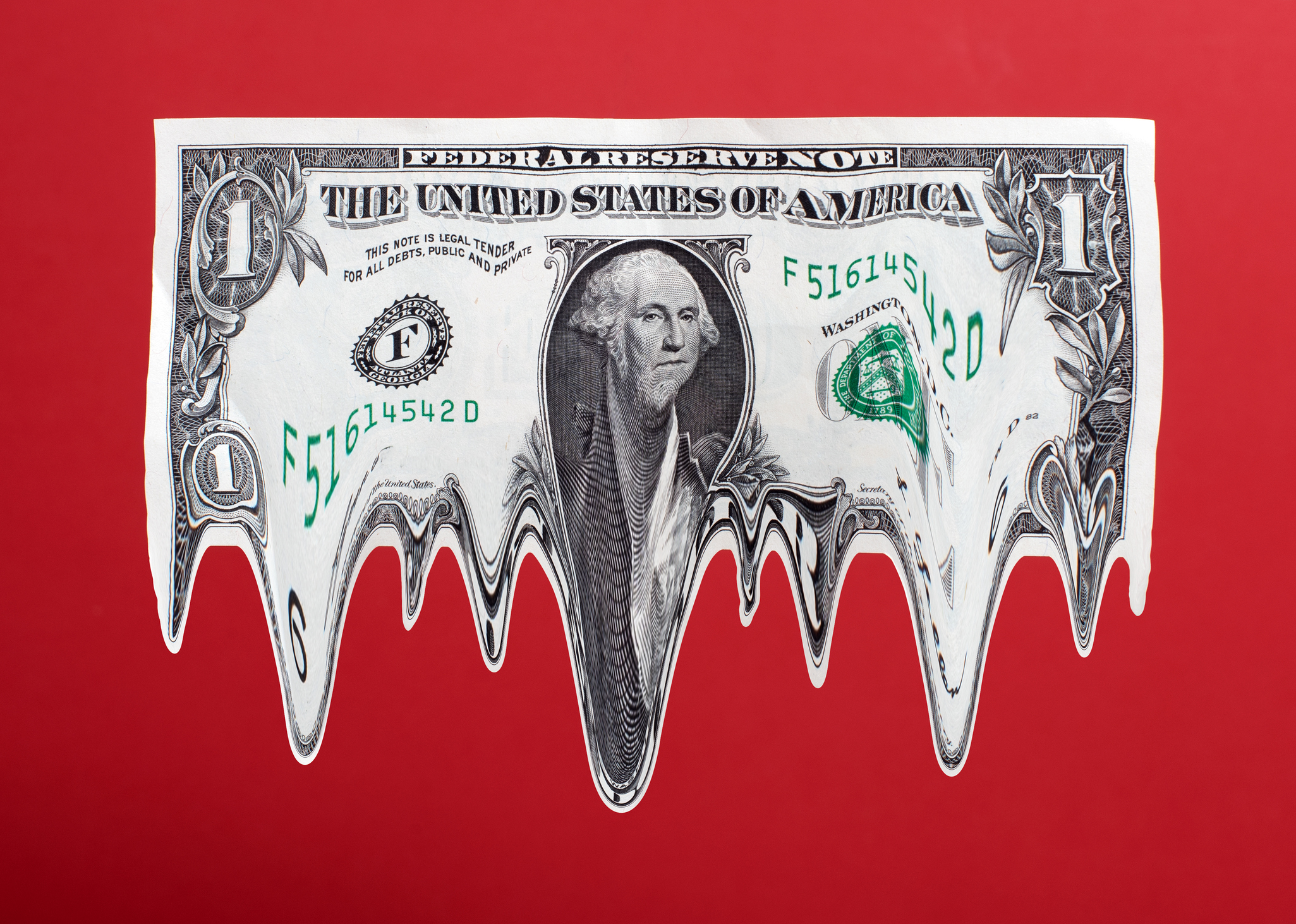Tech stock sell-off may be a good signal
The tech-stock-heavy Nasdaq index is down 15% since its November peak. But what’s bad for tech investors might be good for society as we move into a post-pandemic world.

Get the latest financial news, insights and expert analysis from our award-winning MoneyWeek team, to help you understand what really matters when it comes to your finances.
You are now subscribed
Your newsletter sign-up was successful
Want to add more newsletters?

Twice daily
MoneyWeek
Get the latest financial news, insights and expert analysis from our award-winning MoneyWeek team, to help you understand what really matters when it comes to your finances.

Four times a week
Look After My Bills
Sign up to our free money-saving newsletter, filled with the latest news and expert advice to help you find the best tips and deals for managing your bills. Start saving today!
“There is an old saying that ‘markets ride the escalator up and take the elevator down’,” says Russ Mould of AJ Bell. Last year’s stockmarket gains were steady and serene, with “just 40 daily moves of more than 1% in the FTSE 100 from open to close, compared with 116 the year before”. But with central bankers about to remove monetary stimulus – investors’ “happy pills” – volatility has made a comeback.
Big tech disappoints
America’s S&P 500 and Nasdaq indices both suffered their worst weeks since March 2020 last week, says Ben Levisohn in Barron’s. The tech-heavy Nasdaq is down 15% since its November peak. The trouble started after pandemic winners Peloton and Netflix both issued disappointing trading updates, sending their shares down by 14% and 24% respectively. That has fed a broader sense that the big-tech boom is running out of steam. As Chris Senyek of Wolfe Research notes, the “combination of Fed tightening and some big earnings misses” was what ultimately popped the dotcom bubble in 2000.
The volatility continued into this week. The FTSE 100, which has largely avoided the sell-off, fell by 2.6% on Monday. The pan-European Stoxx 600 lost 3.8% for its worst day since June 2020 as tensions over Ukraine heightened the sense of gloom. The same day on Wall Street, the S&P 500 crashed 4% in the morning only to then rally and close the day with a small gain. Such extreme trading reversals are exceedingly rare. The CBOE Volatility index, dubbed the “fear gauge”, has jumped to its highest level in more than a year.
MoneyWeek
Subscribe to MoneyWeek today and get your first six magazine issues absolutely FREE

Sign up to Money Morning
Don't miss the latest investment and personal finances news, market analysis, plus money-saving tips with our free twice-daily newsletter
Don't miss the latest investment and personal finances news, market analysis, plus money-saving tips with our free twice-daily newsletter
The Nasdaq has retreated to the same levels it was at in June last year, says Bill Blain in the Evening Standard. That could be “the curtain-raiser to a more chaotic market collapse”. The sell-off in Peloton and Netflix is justified – “both are in highly competitive sectors” and will lose out from the end of the pandemic. The sign that something bigger is afoot is that even the likes of Apple and Microsoft, some of the “most profitable firms in the history of capitalism”, are tumbling. “The bubble pops when a collapse in weak stocks spreads as a contagion to strong stocks”.
Pandemic endgame
“Momentum is building against companies with exciting promises to reshape the world,” says Graeme Wearden in The Guardian. Tech stocks are heading for a “crunch fortnight” as its biggest names report their latest earnings. “They must prove they can thrive in a post-lockdown world where the cost-of-living squeeze is leaving people with less money for tech products and services.”
Big tech’s giant market rally has rested on two assumptions, says the Financial Times. “One was that lockdowns would permanently change how we live our lives,” the second was that interest rates would stay ultra-low “for the foreseeable future”. Both are now being brought into question. What’s bad for tech investors might be good for society: instead of betting on more bouts of lockdown misery, markets are ready to move on from the pandemic. “Those of us who prefer a busy social calendar to social distancing should be pleased.”
Get the latest financial news, insights and expert analysis from our award-winning MoneyWeek team, to help you understand what really matters when it comes to your finances.
Alex is an investment writer who has been contributing to MoneyWeek since 2015. He has been the magazine’s markets editor since 2019.
Alex has a passion for demystifying the often arcane world of finance for a general readership. While financial media tends to focus compulsively on the latest trend, the best opportunities can lie forgotten elsewhere.
He is especially interested in European equities – where his fluent French helps him to cover the continent’s largest bourse – and emerging markets, where his experience living in Beijing, and conversational Chinese, prove useful.
Hailing from Leeds, he studied Philosophy, Politics and Economics at the University of Oxford. He also holds a Master of Public Health from the University of Manchester.
-
 Reach for the stars to boost Britain's space industry
Reach for the stars to boost Britain's space industryopinion We can’t afford to neglect Britain's space industry. Unfortunately, the government is taking completely the wrong approach, says Matthew Lynn
-
 Properties for sale with beautiful kitchens
Properties for sale with beautiful kitchensThe best properties for sale with beautiful kitchens – from a Modernist house moments from the River Thames in Chiswick, to a 19th-century Italian house in Florence
-
 Profit from MSCI – the backbone of finance
Profit from MSCI – the backbone of financeAs an index provider, MSCI is a key part of the global financial system. Its shares look cheap
-
 'AI is the real deal – it will change our world in more ways than we can imagine'
'AI is the real deal – it will change our world in more ways than we can imagine'Interview Rob Arnott of Research Affiliates talks to Andrew Van Sickle about the AI bubble, the impact of tariffs on inflation and the outlook for gold and China
-
 Three promising emerging-market stocks to diversify your portfolio
Three promising emerging-market stocks to diversify your portfolioOpinion Omar Negyal, portfolio manager, JPMorgan Global Emerging Markets Income Trust, highlights three emerging-market stocks where he’d put his money
-
 Exciting opportunities in biotech
Exciting opportunities in biotechBiotech firms should profit from the ‘patent cliff’, which will force big pharmaceutical companies to innovate or make acquisitions
-
 What turns a stock market crash into a financial crisis?
What turns a stock market crash into a financial crisis?Opinion Professor Linda Yueh's popular book on major stock market crashes misses key lessons, says Max King
-
 The state of Iran’s collapsing economy – and why people are protesting
The state of Iran’s collapsing economy – and why people are protestingIran has long been mired in an economic crisis that is part of a wider systemic failure. Do the protests show a way out?
-
 The rise and fall of Nicolás Maduro, Venezuela's ruthless dictator
The rise and fall of Nicolás Maduro, Venezuela's ruthless dictatorNicolás Maduro is known for getting what he wants out of any situation. That might be a challenge now
-
 New year, same market forecasts
New year, same market forecastsForecasts from banks and brokers are as bullish as ever this year, but there is less conviction about the US, says Cris Sholto Heaton